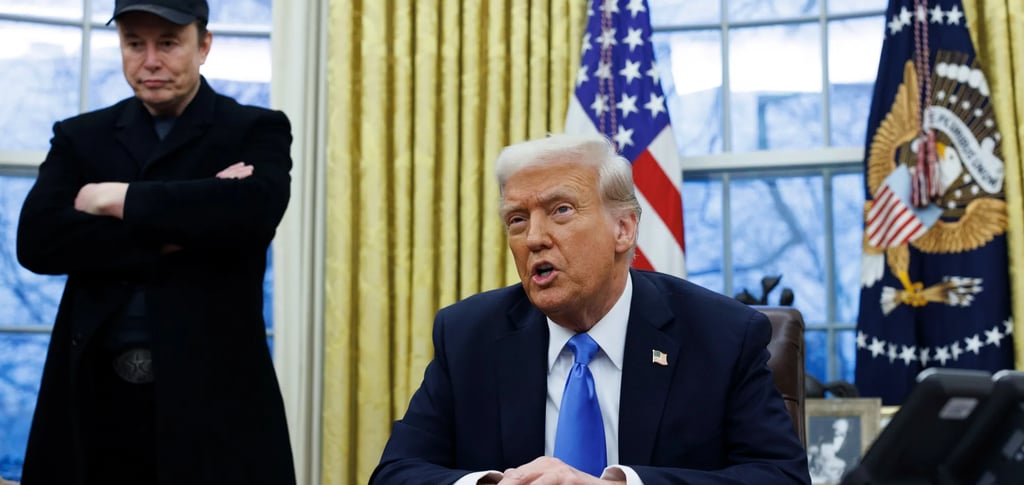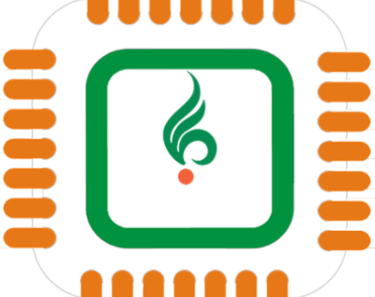Elon Musk Takes Charge of CHIPS Act & AI Oversight
Elon Musk’s new role overseeing the CHIPS Act and AI policy could reshape America’s tech future. From relocating Taiwan’s semiconductor industry to exploring Greenland for new tech hubs, Musk is set to drive bold changes.
4/7/20254 min read


Title: Elon Musk Takes the Helm of CHIPS Act and AI Oversight: A New Era for Semiconductors and Artificial Intelligence
In a surprising and strategic move that is set to reshape the future of American tech, the Trump administration has handed Elon Musk the reins of the CHIPS Act and the oversight of Artificial Intelligence (AI) policy and security. This move comes as part of a broader government reorganization aimed at tackling some of the country’s most critical technological challenges, and the potential consequences could reverberate through the semiconductor and AI industries for years to come.
The New Leadership: Elon Musk Takes Charge of CHIPS Act & AI Oversight
On April 1st, 2025, the White House announced that the responsibility for the CHIPS Act (Creating Helpful Incentives to Produce Semiconductors for America) will shift from the Department of Commerce to Elon Musk’s domain, specifically under his umbrella at DOGE (a reference to Musk’s involvement with the popular Dogecoin cryptocurrency, symbolizing his far-reaching influence in tech). In an unprecedented move, the oversight of all things related to computer and AI security, which were previously handled by the National Institute of Standards and Technology (NIST), will also fall under Musk’s leadership.
This shift is being seen as a massive endorsement of Musk’s prowess in technology, particularly in the realms of semiconductors and AI. The White House press secretary emphasized Musk’s unmatched technological background, especially in the context of the Commerce Department’s leadership, which has been largely focused on financial acumen. For many, Musk represents a unique blend of technical expertise and business innovation that is ideally suited to spearhead efforts to transform America’s semiconductor and AI landscapes.
“There's nobody in the world more suited than Elon Musk to tackle the complexities of semiconductors and AI,” said former President Donald Trump in the announcement. “Elon will turn the money-losing CHIPS Act into a jobs-driving, tariff-based success, creating beauty from chaos.”
But Musk’s new role isn’t just about overseeing the CHIPS Act; it’s about reshaping the future of American technological supremacy. As the U.S. faces increasing challenges from global competitors, particularly China, the stakes are incredibly high. Musk is now in a position to influence policies that could dictate the future of AI development and deployment, including the regulation of systems like ChatGPT, which has sparked debates about safety, security, and ethics in AI.
Moving Taiwan’s Semiconductor Industry to U.S. Shores: A Bold Plan
While Musk’s newfound responsibilities over AI policy are generating much buzz, it’s his plans to address the geopolitical challenges surrounding Taiwan’s semiconductor industry that could have the most lasting impact. Musk has long been vocal about the importance of Taiwan’s semiconductor manufacturing capabilities, which have placed the island at the center of global tensions between the U.S. and China. For years, Taiwan has been a crucial supplier of advanced semiconductors that power everything from smartphones to military equipment.
Musk has reportedly initiated talks to relocate a substantial portion of Taiwan’s advanced semiconductor manufacturing to the United States, citing the risk of China’s growing desire to reclaim the island. The plan, according to insiders, would involve the gradual transfer of Taiwan’s most advanced fabs (semiconductor fabrication plants) to U.S. locations, with Arizona and Ohio already in the running as new hubs for cutting-edge chip production.
This move is both a strategic and pragmatic response to global tensions. It would not only bolster U.S. semiconductor production but also make a significant dent in China’s motivations to act aggressively toward Taiwan. While this would require moving massive amounts of semiconductor equipment and infrastructure, the move would ultimately be far less costly than a full-scale war over the island.
The biggest challenge, however, may lie in the human element. Moving over 300,000 engineers and their families to the U.S. would be a monumental task, but one that Musk, with his deep ties to global talent and innovation ecosystems, is well-positioned to handle. The U.S. government is already making preparations to accommodate these engineers, possibly in exchange for addressing the growing issue of illegal immigration.
Greenland: A New Frontier for Semiconductor and Data Center Development?
As if orchestrating a monumental reshuffling of Taiwan’s semiconductor landscape wasn’t enough, Musk is reportedly looking to Greenland as a potential new location for critical tech infrastructure. Greenland, often perceived as an icy, remote landmass, is home to vast reserves of rare earth elements, which are critical to the production of electronics and semiconductors.
Musk’s vision for Greenland involves leveraging its cold temperatures and abundant renewable energy sources (such as hydroelectric power) to house power-hungry data centers and semiconductor fabs. By capitalizing on Greenland’s natural resources and frigid climate, Musk sees an opportunity to build energy-efficient, sustainable tech hubs capable of meeting the demands of the next generation of artificial intelligence and semiconductor production.
While it may sound like science fiction, Musk’s plans to “green” Greenland could have far-reaching implications. The move would not only reduce the need for costly cooling systems in data centers but also provide an energy-efficient environment for high-tech manufacturing. And in a twist of irony, the environmental impact of these tech operations could help to counter the effects of global warming by melting Greenland’s ice cover and producing additional water resources.
A New Era for the Tech Industry
With Elon Musk now at the helm of both the CHIPS Act and AI oversight, the semiconductor and artificial intelligence industries are on the brink of profound change. Musk’s reputation for shaking up industries, from electric vehicles to space exploration, now extends to semiconductors and AI. His leadership promises to bring bold solutions to the challenges that have long plagued the U.S. tech sector, including supply chain disruptions, talent shortages, and geopolitical risks.
Whether or not Musk can deliver on these ambitious plans remains to be seen, but one thing is certain: his involvement in reshaping the future of American tech is a story that is just beginning.
Conclusion: What This Means for Businesses and Investors
For businesses and investors in the semiconductor and AI spaces, Musk’s new role presents both opportunities and risks. The shifting geopolitical landscape, along with the move to bolster domestic semiconductor production, is a game-changer that could influence investment strategies for years to come.
As Musk continues to push the boundaries of technological innovation, companies in the semiconductor, AI, and related industries will need to stay vigilant and adaptable. Those that can align themselves with these changes will be well-positioned to thrive in this new era of technological advancement.
Source - Semiwiki
QUICK LINKS
NEIL RAO TOWERS, 117 & 118, Rd Number 3, Vijayanagar, EPIP Zone, Whitefield, Bengaluru, Karnataka 560066
200/2, Tada Kandriga, Tada Mandalam, Tirupati District - 524401
Locations

